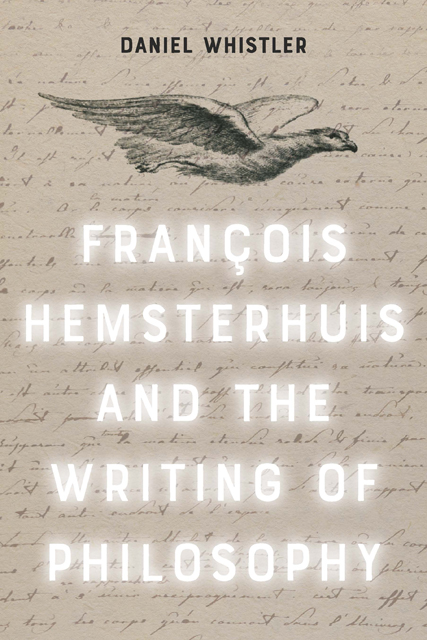Preface: Reasons to Read Hemsterhuis
Published online by Cambridge University Press: 03 June 2023
Summary
Reasons to Read Hemsterhuis
1. Like Plato’s Symposium before it, Simon ou des facultés de l’âme – the penultimate dialogue François Hemsterhuis (1721–90) completed – ends in noise, confusion and, in this case, a neighbour ‘knocking on my door, howling and shouting at me with all his strength’ (EE 2.171, OP 572). And, amidst this cacophony of non-philosophical voices, both the Symposium and Simon glimpse a further conversation that touches on philosophy’s relation to the poetic: in the Symposium, Socrates, Agathon and Aristophanes invoke a poet (typically taken to refer to Plato himself) able to unite the tragic and comic arts (1962: 223c–d); in Simon, Socrates and Agathon examine the ‘close relation between the language of philosophy and the dithyramb’ (EE 2.171, OP 572). These discussions are alluded to in passing, drowned out by other noises, without being reported or performed for the reader. That is, when the two dialogues come to speak explicitly of their relation to the poetic, they break up, and the readerly desire to know more is left frustrated. Within Simon, Hemsterhuis is therefore faithful to a Platonic model in his refusal to methodically elucidate the poetic features of philosophy; and yet, whereas ‘my Father and Teacher’ Plato (B 2.45, 102) does not elsewhere comment on his own textual practices in any straightforward manner, this is not Hemsterhuis’ last word on the subject. Both his final completed dialogue, Alexis ou de l’âge d’or, and his correspondence of the 1780s will explicitly advocate for ‘the poetic interior of philosophy’ as Philippe Lacoue-Labarthe and Jean-Luc Nancy have put it (1975: 155). The late Hemsterhuis, unlike the extant Plato, never again refrains from theorising his own writing of philosophy. And it is this material that forms the subject matter of this book.
One example is the following passage written to Amalie Gallitzin in April 1786:
In 1775, I had the precious happiness of making your acquaintance … and, from then on, our frequent conversations led us to understand that, in order to familiarise men with beautiful philosophy, it was not a matter of being superficial and showing merely its shadow, as the enlightened spirits of this century believe, either in error or by necessity; but [it was a matter of] removing [this philosophy] from the weighty husks of the school which concealed it, locked it up and constrained it, so as to replace them with festoons and flowers that soften its majestic beauty to the point of attracting and no longer obfuscating the gaze.
- Type
- Chapter
- Information
- Francois Hemsterhuis and the Writing of Philosophy , pp. x - xviiiPublisher: Edinburgh University PressPrint publication year: 2022



